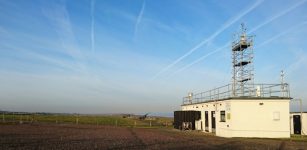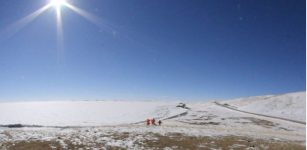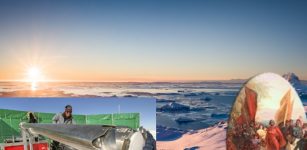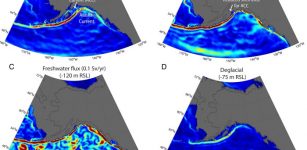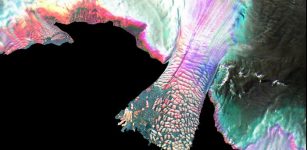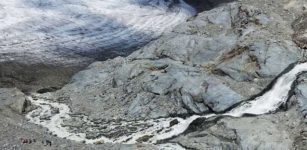Glacial Retreat In Canadian Arctic Reveals Ice-Free Landscapes Unseen In More Than 40,000 Years
MessageToEagle.com – Glacial retreat in the Canadian Arctic has uncovered landscapes that haven’t been ice-free in more than 40,000 years and the region may be experiencing its warmest century in 115,000 years, new University of Colorado Boulder research finds.
Researchers uses radiocarbon dating to determine the ages of plants collected at the edges of 30 ice caps on Baffin Island, west of Greenland. The island has experienced significant summertime warming in recent decades.
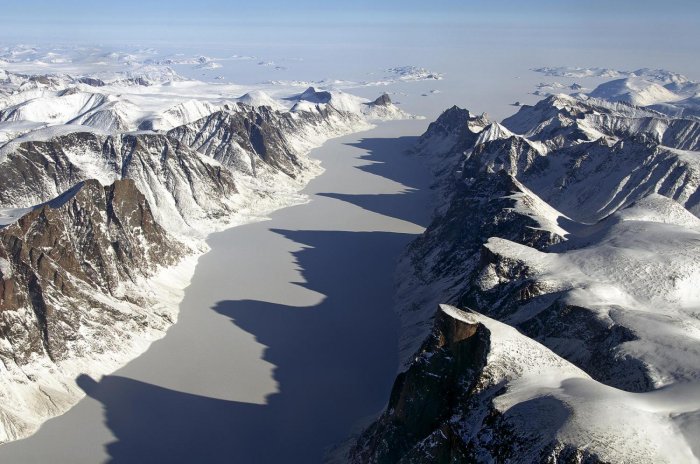
“The Arctic is currently warming two to three times faster than the rest of the globe, so naturally, glaciers and ice caps are going to react faster,” Simon Pendleton, lead author and a doctoral researcher in CU Boulder’s Institute of Arctic and Alpine Research (INSTAAR), said in a press release.
Baffin is the world’s fifth largest island, dominated by deeply incised fjords separated by high-elevation, low-relief plateaus. The thin, cold plateau ice acts as a kind of natural cold storage, preserving ancient moss and lichens in their original growth position for millennia.
“We travel to the retreating ice margins, sample newly exposed plants preserved on these ancient landscapes and carbon date the plants to get a sense of when the ice last advanced over that location,” Pendleton said. “Because dead plants are efficiently removed from the landscape, the radiocarbon age of rooted plants define the last time summers were as warm, on average, as those of the past century”
In August, the researchers collected 48 plant samples from 30 different Baffin ice caps, encompassing a range of elevations and exposures. They also sampled quartz from each site in order to further establish the age and ice cover history of the landscape.
The results showed that the ancient plants at all 30 ice caps have likely been continuously covered by ice for at least the past 40,000 years.
The findings suggest that modern temperatures represent the warmest century for the region in 115,000 years and that Baffin could be completely ice-free within the next few centuries.
“You’d normally expect to see different plant ages in different topographical conditions,” Pendleton said. “A high elevation location might hold onto its ice longer, for example. But the magnitude of warming is so high that everything is melting everywhere now.”
“We haven’t seen anything as pronounced as this before,” Pendleton said.
MessageToEagle.com

